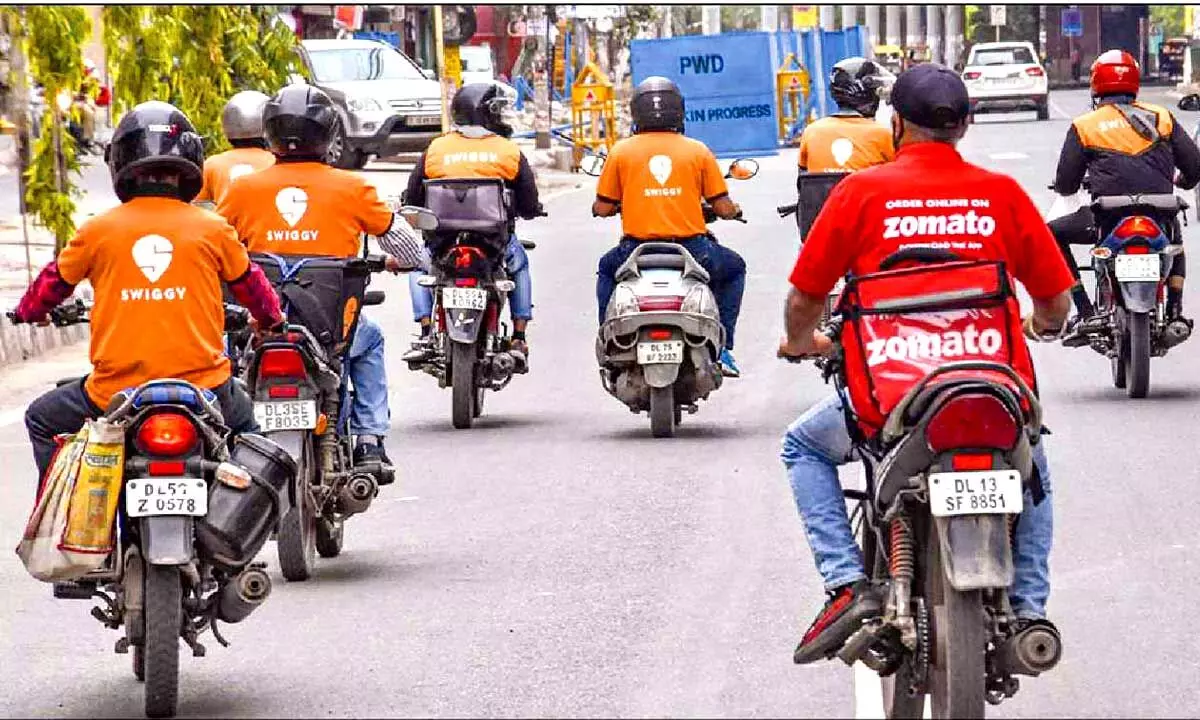No digital labour platform perfect to ensure gig workers’ welfare

The report examines the changing nature of platform work as platforms increasingly take control of when and for how long workers can provide services or gigs. It also discusses the potential impact of proposed legislations for platform workers in Karnataka and Jharkhand.
New Delhi: Digital labour platforms in India need to do more to improve the conditions of gig workers as from 11 such leading internet companies, no platform scored more than six out of the maximum of 10 points, and none scored all the first points across the five parameters, including Fair Pay, a report showed on Tuesday.
The report by Bengaluru-based Fairwork India, spearheaded by the Centre for IT and Public Policy (CITAPP), International Institute of Information Technology Bangalore (IIIT-B), in association with Oxford University, assessed the 11 platform against five principles: Fair Pay, Fair Conditions, Fair Contracts, Fair Management, and Fair Representation.
These platforms were Amazon Flex, Bigbasket, BluSmart, Flipkart, Ola, Porter, Swiggy, Uber, Urban Company, Zepto and Zomato.
Only Bigbasket and Urban Company were awarded the first point under Fair Pay for instituting a minimum wage policy that guaranteed all their workers earn at least the hourly local minimum wage after factoring in work-related costs, the report mentioned.
No platform earned the second point under Fair Pay, which requires platforms to commit to and ensure a local living wage after work-related costs or provide sufficient evidence that all workers earn at least this amount.
“This year witnessed gig workers’ welfare increasingly gain attention in politicalmanifestos and legislative initiatives. But with the implementation of these efforts remaining uncertain, and platforms redefining gig work, research and advocacy to improve the conditions of gig workers are ever more relevant,” said Professors Balaji Parthasarathy and Janaki Srinivasan, principal investigators. The 11 platforms offer location-based services in sectors such as domestic and personal care, logistics, food delivery, and transportation.
The report examined the changing nature of platform work as platforms increasingly take control of when and for how long workers can provide services or gigs. It also discusses the potential impact of proposed legislations for platform workers in Karnataka and Jharkhand.
Amazon Flex, Bigbasket, BluSmart, Swiggy, Urban Company, Zepto and Zomato were awarded the first point under Fair Conditions for providing adequate safety equipment and periodic safety training to workers on their platforms.
Only Bigbasket, Swiggy, Urban Company, Zepto and Zomato were awarded the second point for providing workers with accident insurance coverage at no additional cost, monetary compensation for income loss in cases they are unable to work due to medical reasons other than accidents, and for ensuring a worker’s standing is not negatively affected when they return after a break taken with prior notice to the platform.
Six out of 11 platforms were awarded the first point for Fair Contracts.
“Representation through a collective body or trade union is a vital dimension of fairness at work. It is disconcerting that despite the rise in platform worker collectivisation across the country over the past six years, there was insufficient evidence from any platform to show a willingness to recognise a collective body of workers,” the report noted.











